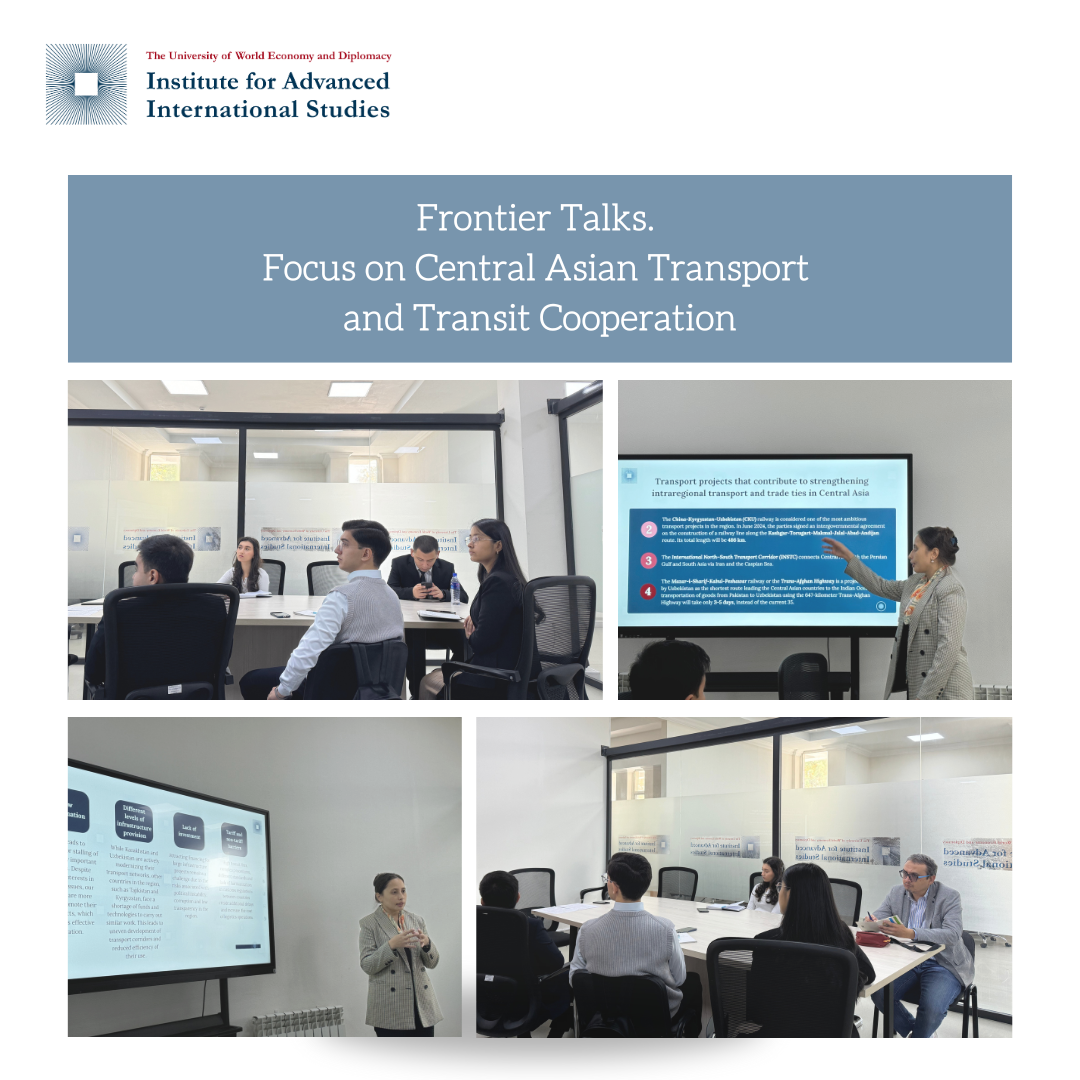
The Institute for Advanced International Studies (IAIS) continues its commitment to knowledge-sharing through its ongoing Frontier Talks series. The latest seminar, led by Senior Research Fellow Nargiza Umarova, focused on the critical role of transport and transit cooperation as a driving force for regional integration in Central Asia.
The expert presented a detailed analysis of the intracontinental position of Central Asia, which presents both opportunities and challenges for the region’s economic development. While the region has vast potential as a transit hub, high transportation costs, which can reach up to 50% of the final cost of goods, limit trade competitiveness. She underscored the importance of improving transport connectivity to drive integration and economic growth in the region.
The workshop shed light on important recent initiatives such as the Regional Transport Connectivity Development Programme (2018) and the establishment of the Regional Transport and Connectivity Centre at the UN in 2020, which due to various factors have not been implemented. The importance of new transport corridors such as the Galaba-Amuzang-Khushadi railway and the Tashkent-Andijan-Osh-Kashgar road corridor was emphasised. These projects have doubled trade between neighbouring states, a key achievement for regional integration.
Nargiza Umarova also emphasized the rapid growth of the freight market in Central Asia, with an increase of two to three times in 2023 alone. Looking ahead, ambitious projects such as the China-Kyrgyzstan-Uzbekistan railway and the Trans-Afghan Highway are set to further strengthen the region’s strategic position as a trade hub, offering quicker access to global markets like the Indian Ocean and the Persian Gulf.
Despite these advances, challenges remain. The speaker pointed to uneven development in infrastructure, tariff and non-tariff barriers, and low investment as ongoing issues that require collective efforts and harmonized policies among the Central Asian nations.
Attendees exchanged views on how regional cooperation could mitigate existing barriers, with several proposing increased bilateral and multilateral dialogues among Central Asian nations to develop a coordinated approach to transit projects. Others highlighted the importance of digitalizing transport documentation and enhancing the efficiency of border controls to reduce delays and costs. The interactive session underscored the shared interest in overcoming these challenges through collective efforts and fostering stronger ties between Central Asian countries.
The seminar was part of IAIS’s broader aim to foster dialogue on critical regional and global issues. As the Frontier Talks series progresses, future seminars will continue to engage experts and scholars on pressing topics, particularly relevant to Central Asian integration and development.